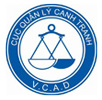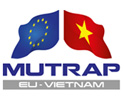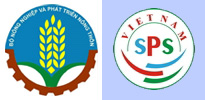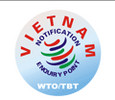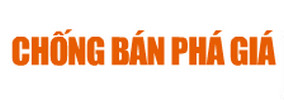
Despite the growth in export turnover, enterprises of cashew kernels, pepper, spices, etc. are not happy when each export shipment is filled with uncertainty about risks in international trade as well as the price situation increasing day by day.
"Smiling on the outside, crying on the inside"
According to a report of the Vietnam Cashew Association, in the first 6 months of 2023, the whole industry exported over 279,000 tons of cashew kernels of all kinds, up 9.49% over the same period in 2022.
Data from the Vietnam Pepper and Spices Association also recorded positive numbers of export volume in the first half of this year. In which, the export output of pepper in 6 months reached 152,986 tons, up 21.8% over the same period last year; cinnamon exports grew by 25.1%, reaching 43,186 tons. Similarly, many other spices also achieved high export growth in output such as anise at 7,443 tons, up 85.7%; chili reached 6,958 tons, up 108.4%; Turmeric ginger and some other spices reached 26,029 tons, up 544%...
Despite the high growth in export volume, the general situation of these commodities is a sharp drop in export prices. Typically, the average export price of cashew kernels in the first 6 months of 2023 was only about 5,717 USD/ton, down 1.73% over the same period last year. For pepper, the average export price also fell to 3,484 USD/ton for black pepper and 5,011 USD/ton for white pepper, down 879 USD and 1,070 USD respectively. The export price of cinnamon also plummeted to 737 USD compared to the same period in 2022, to only 2,992 USD/ton; star anise prices down 9.6%...
The decline in prices has made the growth in export turnover of commodities significantly lower than the growth in output. Even, export turnover also recorded a decrease of 14.6% for pepper and 9.6% for anise...
Bach Khanh Nhut, Standing Vice Chairman of the Vietnam Cashew Association (VINACAS), shared that since the Covid-19 epidemic, the cashew industry has always faced unpredictable fluctuations, making businesses very difficult in planning. Especially the imbalance between raw cashew imports and kernel exports, when the price of raw cashew is high but the price of kernel continuously decreases. “Even buyers take advantage of this fact to intentionally not raise prices. Because they know that the amount of raw cashew nuts in stock in Vietnam or still abroad and not yet shipped to Vietnam is very large. Buyer psychology thinks that the supply is too abundant, so there is no need to buy soon,"- Nhut shared.
Faced with that situation, the cashew industry has to apply many ways to add value to the industry, including internal policies, calling for factories to promote deep processing. Currently, 95% of cashew kernels exported are in raw form, and only 5% are deeply processed. This makes Vietnam completely dependent on foreign markets as well as the prices offered by buyers. However, the difficulty of deep processing today is having strong capital, having to understand the market, needs, tastes, and tastes the market is aiming for… while the bank's credit policy is almost frozen.
Heavy insecurity
In addition to the above-mentioned problems, over time, enterprises in the cashew, pepper, and spice industries have also faced the risk of fraud in international trade. Only in the last 2 years, cases of Vietnamese enterprises being scammed by foreign partners, facing the risk of losing export shipments in a row happened with constantly changing methods and tricks that made enterprises not unsettled. Associations constantly give warnings to businesses about carefully understanding customers, considering and being sober, carefully assessing their financial ability when signing large contracts, and delivering far at low prices.
Bach Khanh Nhut said that most of the exporting enterprises have many years of experience in the profession, have traded a lot of shipments and most are safe. Therefore, the incidents that happened in the past are unexpected. “Through the working sessions, banks, experts… all recommended businesses to use the L/C payment method to ensure safety. However, this is only a theory. In fact, any business that places a purchase request with a customer in the form of L/C is immediately rejected by the customer. The reason is that applying the L/C form only when buying and selling with a very small quantity, while in large quantities, the L/C method will cause businesses to 'bury' money in the bank, while the capital needs of the business is always very high,” said Nhut.
Through the cases that have happened in the past time, Mr. Nhut said, almost no enterprises use the L/C method. In particular, unlike previous cases where exporters connected with buyers through brokers, in the most recent case in Dubai, Vietnamese enterprises connected directly with this customer at the Fair. Gulfood Dubai earlier this year and an export shipment in April have been successfully made. But on the 2nd order in June, suddenly there was a problem.
According to VINACAS leaders, Dubai is an intermediary market and a focal point for bringing goods to Europe and Africa. The annual Gulfood Fair here is one of the most famous food fairs in the world. This is also a very effective place to meet, find and contact customers of businesses from all over the world. However, the incident that Vietnamese enterprises encountered recently is very rare. Accordingly, VINACAS has recommended that businesses should ask embassies in host countries to check information to see the reputation of enterprises before signing contracts.
Source: VCN
Keywords: cashew kernels, pepper, spices, growth



